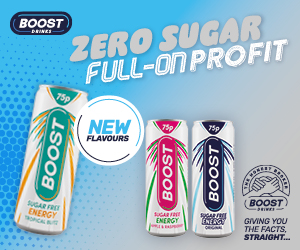From loyalty cards to mobile apps and web-based games, digital technology offers many ways to retain customers – what’s the future of loyalty technology?
How loyal are your customers? If the answer is ‘not as loyal as you’d like’, there may be something you can do about it – without slashing any more prices. The idea of the customer loyalty scheme is hardly a new one, but has begun to regain traction in the last couple of years, with high-profile launches from the likes of Morrisons and Spar (not to mention what looks like a possible trial by Lidl).
In the current, fiercely competitive climate, retailers who don’t reward their customers are missing an important trick, Gail Cohen, director general of the UK Gift Card and Voucher Association reckons.
“An effective reward scheme helps regular customers to feel special, valued and appreciated. With this approach, retailers can incentivise their most valued customers to make repeat and additional purchases – and do wonders for their bottom line,” she said.

“Loyal customers buy more and are often willing to pay more, boosting revenue over time. These customers are also good for business, because they become your best advocates. They can become walking, talking advertisements for your company.”
However, if a case can be made for such schemes, there are also potential difficulties. Implementation can be complex and costly and it isn’t easy to predict success rates.
It can be difficult for retailers to know how to proceed – especially with the spread of digital technology shifting the ground under their feet.
In fact, in a recent report titled ‘The Future of Retail: 10 Trends of Tomorrow’, Planet Retail predicted the death of the traditional points-based loyalty card.
“We believe the end is nigh,” said retail insights director Natalie Berg. “The rise of shopper promiscuity and general strive for more honest, transparent pricing has had a detrimental impact on traditional loyalty schemes.
“That said, the notion of rewarding your most loyal, most profitable customers will never go away. The future will revolve around personalisation, digitisation and gamification.”

It’s specifically ‘gamificiation’ (the incorporation of game-playing elements into reward schemes) that has captured the interest of retail loyalty specialist TCC.
“It’s easy to spend a lot of money on something that in the end doesn’t get a lot of take up,” said Malcolm Fogarty, the firm’s global digital director. “The most important thing is to make it fun.”
TCC recently acquired Gametation, a provider of mobile device gaming campaigns – the name combines “game” and “temptation”. The Denmark-based company has already created campaigns for convenience customers including Spar in the UK, Statoil Fuel and Retail in Scandinavia and 7-Eleven across Europe.
“They’re enjoying a huge degree of success with retailers by creating very simple, high-win-rate games, engaging shoppers and gathering them into store more frequently to claim prizes,” said Fogarty.
The games make it easy and fun for people to engage with retailers in a different way and begin preferring one over another, he suggested.
“There will be a transition from more analogue loyalty programmes and cards to more digital initiatives, but adoption takes time. Whatever the technology, there has to be a good reason for customers to use it. That comes down to whether it’s fun, engaging and practical.”











